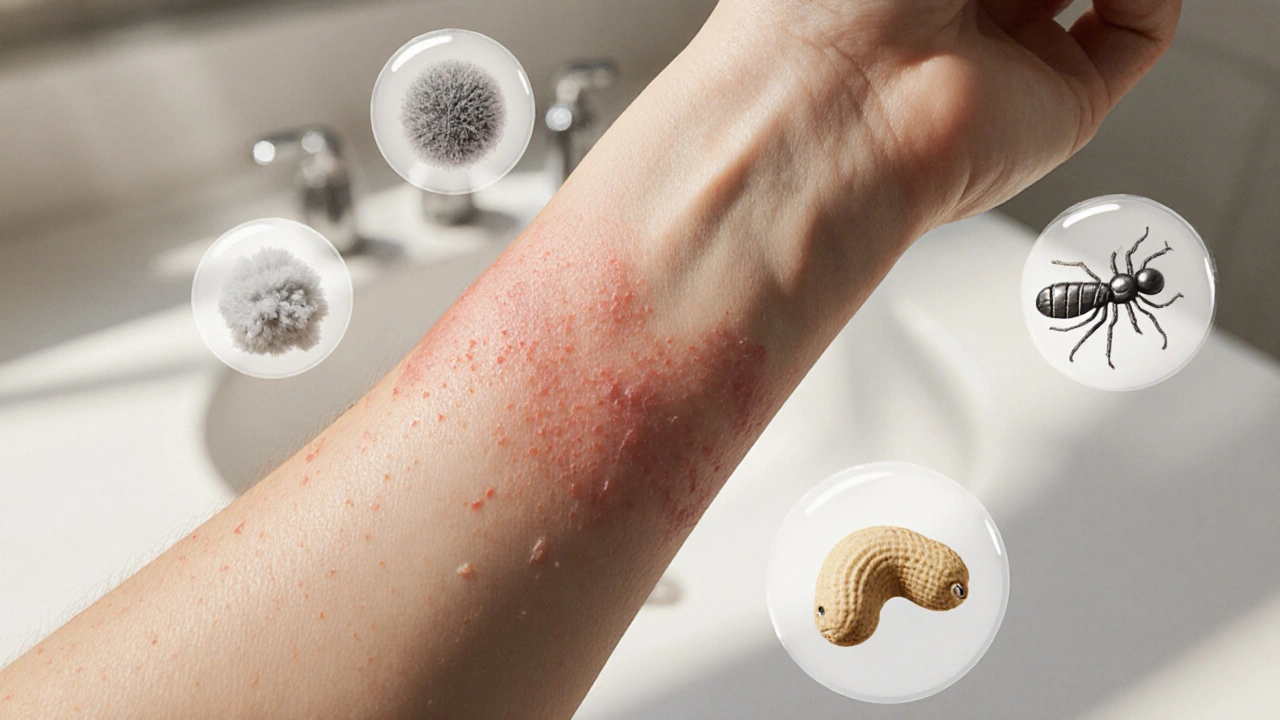Itchy Skin
When dealing with itchy skin, a burning or crawling sensation that makes you want to scratch. Also known as skin itching, it can show up on any part of the body and often signals an underlying issue.
One of the most common conditions linked to this feeling is eczema, a chronic inflammation that makes the skin red, flaky and really itchy. Another frequent culprit is dermatitis, an irritation that can be triggered by allergens, chemicals or even friction. When the body senses these irritants, it releases histamine, which is why many doctors recommend antihistamines, medications that block histamine receptors and reduce the urge to scratch. Understanding these connections helps you choose the right relief strategy instead of just masking the symptom.
Common Triggers and Simple Relief
Typical triggers include dry air, harsh soaps, certain fabrics, and even stress. If you notice the itch gets worse after a shower, try lowering water temperature and using fragrance‑free cleansers. Moisturizers packed with ceramides or glycerin act like a barrier, sealing in moisture and calming the nerve endings. For sudden flare‑ups, a short course of oral itchy skin antihistamines or a gentle topical steroid can break the itch‑scratch cycle fast.
Sometimes the itch originates from a systemic cause, such as an allergic reaction to food or medication. Keeping a simple diary of foods, skincare products, and environments can reveal patterns you might miss otherwise. If you suspect an allergy, an over‑the‑counter antihistamine paired with a cool compress usually provides quick relief while you arrange a professional evaluation.
For chronic sufferers, adopting a routine that combines daily moisturization, regular laundry with hypoallergenic detergents, and stress‑relief practices like short walks or breathing exercises can lower the overall itch burden. Many people find that applying a cold compress for a few minutes before bedtime reduces nighttime scratching, leading to better sleep and less skin damage.
When the itch is localized—say on the scalp or an elbow—targeted treatments work best. A medicated shampoo with coal tar or salicylic acid can soothe scalp itch, while a light occlusive cream with urea helps rough elbows heal. Remember, scratching can break the skin and invite infection, so keep nails trimmed and use soft cotton gloves at night if you tend to scratch in your sleep.
If over‑the‑counter options aren’t enough, a prescription‑strength topical steroid or a newer non‑steroidal anti‑inflammatory cream may be needed. These are usually short‑term solutions intended to get the inflammation under control before you switch back to gentle moisturizers and antihistamines for maintenance.
Bottom line: itchy skin is a symptom, not a disease. By pinpointing the cause—whether it’s eczema, dermatitis, an allergy, or environmental factors—and matching it with the right combination of moisturizers, antihistamines, and lifestyle tweaks, you can break the endless cycle of scratching. Below you’ll find articles that dive deeper into each of these areas, offering step‑by‑step guides, product suggestions, and expert tips to keep your skin calm and comfortable.
How to Pinpoint Allergy Triggers and Soothe Itchy Skin
Learn how to spot allergy triggers, keep an itch diary, and use simple home and OTC remedies to calm itchy skin fast.
